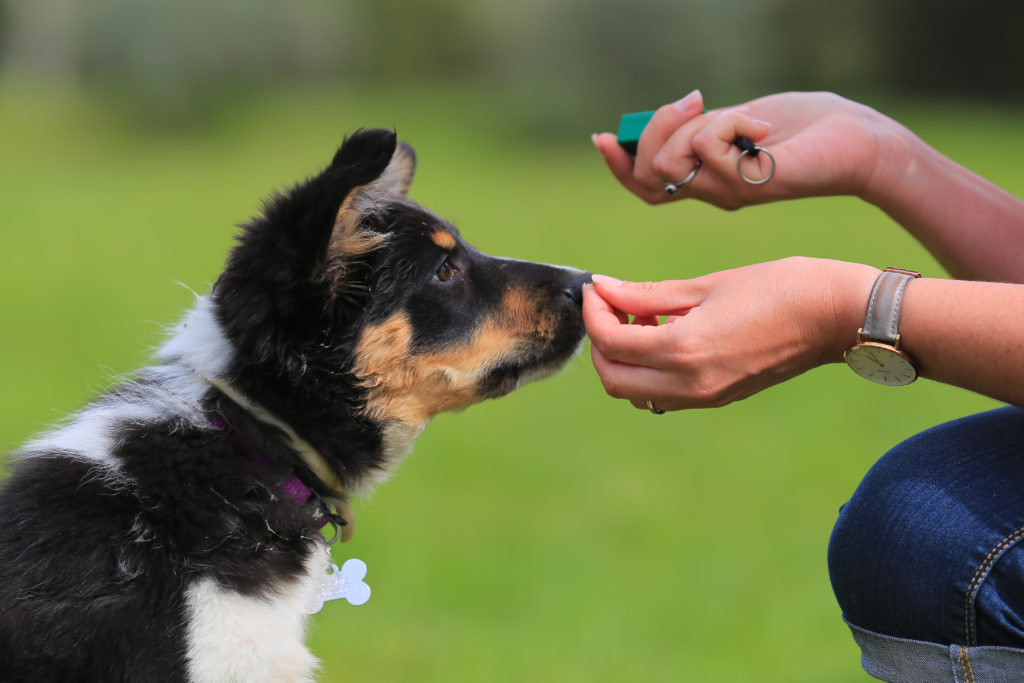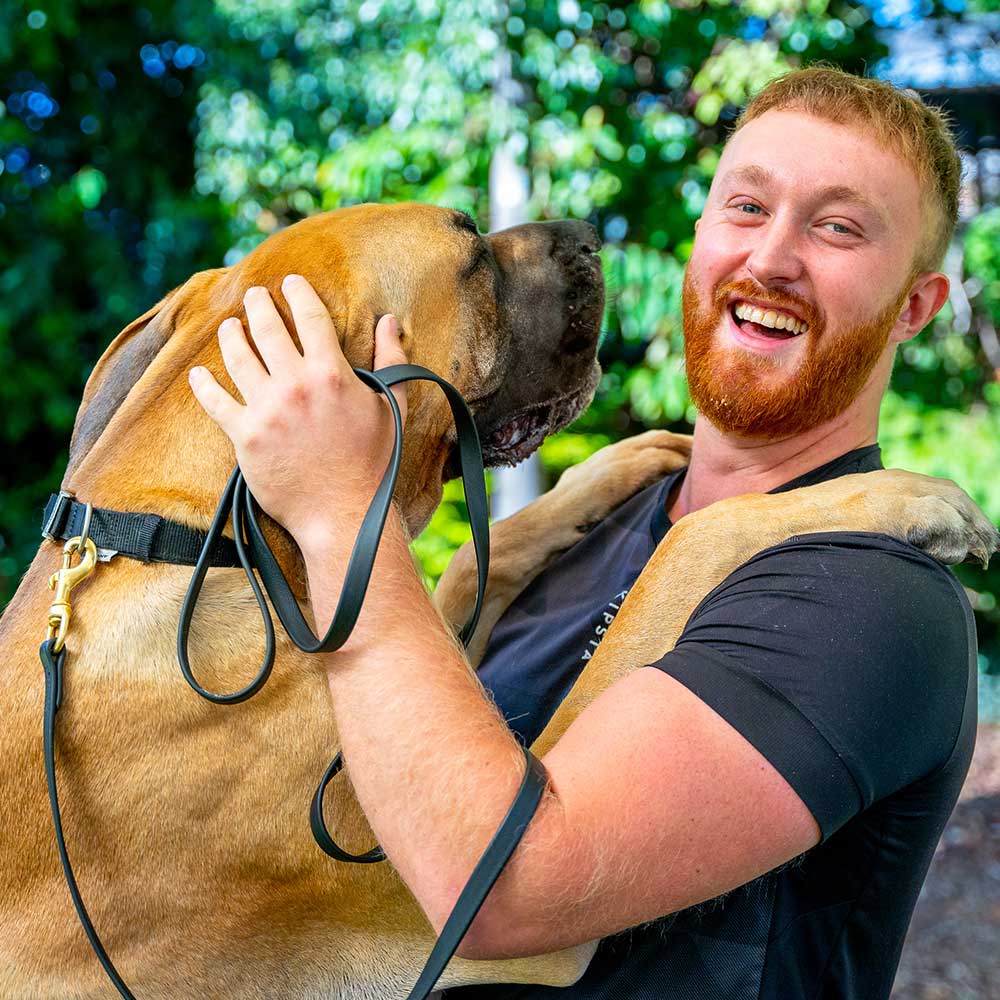Discover the Best Dog Training Methods for Every Breed
The Ultimate Overview to Canine Training: Transform Your Pet's Actions
Reliable dog training is necessary for cultivating an unified partnership in between animals and their proprietors. The intricacies of canine habits and the implementation of structured training strategies play a crucial duty in this process. By understanding the principles of favorable reinforcement, uniformity, and socialization, pet dog owners can navigate usual difficulties that develop throughout training. This overview not only aims to outfit you with the necessary devices to change your pet dog's behavior however likewise welcomes you to explore just how these foundational ideas can result in a much deeper link with your animal. What might be the very first step in this transformative journey?
Understanding Pet Dog Actions
Understanding canine habits is essential for effective training and a harmonious connection in between pet dogs and their proprietors. A pet's behavior is influenced by a combination of genetics, environment, and experiences. Dog training. Recognizing these elements enables proprietors to customize their training approaches to fulfill the individual needs of their animals
Canines interact mainly with body language, vocalizations, and facial expressions. A wagging tail can suggest enjoyment or happiness, while a put tail might indicate anxiety or entry. Observing these cues enables owners to react properly, enhancing favorable actions and resolving adverse ones effectively.
In addition, recognizing the social structure of pets can offer understandings into their actions. Canines are pack pets, and they flourish in an organized environment. Developing clear boundaries and constant rules can prevent confusion and advertise a feeling of safety and security.
In addition, recognizing the all-natural impulses of pet dogs, such as the urge to chase after or dig, is essential. These impulses can be rerouted through proper electrical outlets, such as play or exercise. By comprehensively recognizing these behavior aspects, owners can cultivate a favorable training experience, ultimately causing a well-adjusted and loyal canine companion.
Vital Educating Strategies
Effective canine training counts on a selection of important methods that can dramatically enhance the learning process for both the proprietor and the pet. One fundamental method declares reinforcement, which entails satisfying preferable actions with deals with, appreciation, or play. This approach urges pets to duplicate the behaviors that lead to positive outcomes, fostering a trusting partnership between the pet and owner.
One more secret method is uniformity in expectations and commands. Utilizing the exact same verbal cues and hand signals helps the dog understand what is required, reducing confusion and advertising quicker understanding. In addition, developing clear limits and guidelines is important for efficient interaction.
Socialization is also a vital component of training. Exposing dogs to various environments, individuals, and various other animals helps them create proper social skills and reduces anxiousness in unknown situations.
Lastly, perseverance and timing are important. Training sessions need to be regular but quick, making sure that the canine remains involved and receptive. By using these vital techniques, proprietors can create a favorable and structured training experience that advertises etiquette and enhances the bond with their canine companions.
Developing a Training Set Up
Exactly how can a well-structured training schedule improve a dog's understanding experience? A training routine provides uniformity, guaranteeing that pets receive normal, focused guideline. This predictability helps pets understand what is anticipated of them, reinforcing their discovering and permitting far better retention of actions and commands.
When creating a training routine, it is important to take into consideration the pet dog's age, type, and specific character. Youthful pups may take advantage of much shorter, a lot more frequent sessions, learn the facts here now while grown-up pet dogs may grow with longer, less frequent training durations. Including a selection of activities can likewise keep the sessions engaging, protecting against boredom and promoting excitement for knowing.
Furthermore, organizing training sessions at certain times of the day can aid strengthen a routine. For example, matching training with day-to-day walks or play can produce a favorable organization with learning. It is also crucial to consist of time for support, such as deals with or praise, to compensate wanted habits promptly.
Last but not least, flexibility is crucial. While uniformity is crucial, being versatile to the dog's state of mind or energy level can boost their knowing experience. A well-crafted training timetable inevitably lays the structure for reliable interaction and a more powerful bond between the dog and owner.
Usual Training Obstacles
Despite having a well-structured training timetable, dog owners often run into different obstacles throughout the training process. One usual concern is inconsistency in commands and signs. When several household members make use of various terms or tones, a canine might come to be baffled, preventing its ability to discover properly.
One more regular obstacle is distraction. Dog training. Pets this link are naturally curious creatures, and outside stimuli such as various other pets, noises, or people can divert their focus during training sessions. This requires owners to produce a controlled atmosphere or progressively present disturbances to strengthen emphasis
Furthermore, varying power degrees can affect training end results. High-energy canines might have a hard time to settle down and concentrate, while much more easygoing types might require extra motivation to involve. Customizing the training method to fit the specific canine's personality is important for success.

Structure a Solid Bond
A solid bond in between a dog and its proprietor is crucial for successful training and general wellness. Dog training. This relationship cultivates depend on, which is critical for reliable interaction throughout the training process. When a dog feels connected and safe and secure to its owner, it is more probable to react favorably to commands and hints
To develop this bond, uniformity is vital. Developing a regimen that consists of routine feeding, exercise, and training sessions helps create a feeling of security. In addition, positive reinforcement techniques, such as deals with, appreciation, and play, strengthen preferred behaviors while enhancing the emotional link.
Socializing is an additional important facet of bond-building. Exposing your pet dog to different settings, people, and other animals aids them really feel much more comfortable and certain, boosting the bond with their proprietor. Taking part in activities with each other, such as strolling, playing fetch, or taking part in obedience training, promotes synergy and mutual enjoyment.
Conclusion

Understanding pet habits is important for effective training and an unified relationship in between pets and their proprietors.Reliable pet training counts on a range of vital techniques that can dramatically improve the understanding process for both the canine and the proprietor.Despite having a well-structured training schedule, pet dog go to this site proprietors usually experience different obstacles throughout the training procedure.In conclusion, reliable dog training relies on an extensive understanding of canine habits, the application of necessary strategies, and the facility of an organized training timetable. By emphasizing favorable support and uniformity, dog owners can significantly enhance their family pets' habits, eventually making sure an unified connection and promoting the well-being of both the dog and its environment.